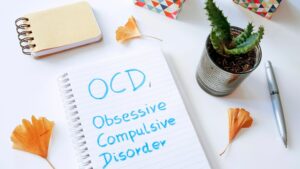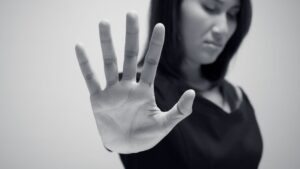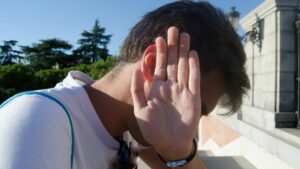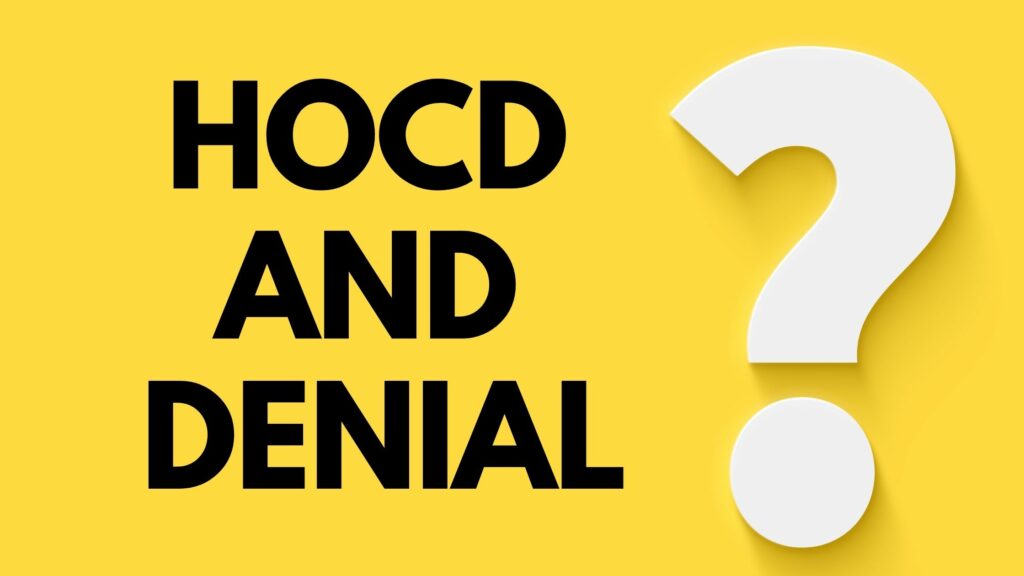It can be difficult to tell the difference between HOCD and denial. Many people who suffer from OCD often deny that they have a problem. They may feel like they are just being paranoid or that their thoughts are normal. It is important to be able to distinguish between these two conditions so you can get the help you need. In this blog post, we will discuss the differences between HOCD and denial and how to tell if you are suffering from OCD.
Contents
What Does HOCD Mean?

HOCD stands for Homosexual Obsessive Compulsive Disorder. It is a subset of OCD characterized by unwanted, intrusive thoughts and fears about one’s sexual orientation. People with HOCD often worry that they are gay, bisexual, or transgender, even though they do not have any same-sex attraction. They may also obsess about whether they are “really” straight.
HOCD stands for Homosexual Obsessive Compulsive Disorder. It is a type of OCD that causes a person to obsess over whether or not they are gay. They may constantly question their sexuality and feel like they need to perform compulsions (such as checking themselves in the mirror) to make sure they are still straight. HOCD can be a very debilitating disorder, as it can cause a person to doubt their entire identity.
What Does Denial Mean?

Denial is defined as an unconscious defense mechanism characterized by the refusal to acknowledge painful realities, thoughts, or feelings. In other words, denial allows a person to avoid having to deal with difficult truths.
There are different types of denial. For example, someone may deny that they have a problem with alcohol even though their drinking has caused problems in their life. Or, someone may deny that they are angry even though they lash out at others frequently.
What Are The Similarities Between HOCD And Denial?

There are a few key similarities between HOCD and denial. Both conditions can cause sufferers to:
Avoid People Or Situations
People with HOCD may avoid anything that could trigger their anxiety about being gay. This might mean avoiding TV shows or movies with homosexual content, steering clear of conversations about sexuality, and even avoiding being around people who identify as LGBTQ. People in denial may also do the same thing but for different reasons. For example, a person in denial about their alcoholism may avoid places where they know alcohol will be served.
Feel Anxious Or Nervous
Both HOCD and denial can cause sufferers to feel anxious or nervous. This may be because they are constantly thinking about their fear or because they are avoiding people and situations that trigger their anxiety.
Have Trouble Sleeping
HOCD and denial can both make it difficult for sufferers to get a good night’s sleep. This may be because they are anxious or stressed about their condition, or because they are avoiding people and situations that trigger their anxiety.
Engage In Compulsive Behaviors
Both HOCD and denial can lead sufferers to engage in compulsive behaviors. A person with HOCD may compulsively check their appearance in the mirror or research whether they are gay on the internet. A person in denial about their alcoholism may compulsively check the liquor cabinet or drink in secret.
These are some similarities between HOCD and denial. However, some key differences can help you tell if you’re suffering from OCD or denial.
What Are The Differences Between HOCD And Denial?

If you’re not sure whether you’re suffering from HOCD or denial, some key differences between the two can help you figure it out. Here’s a look at the main distinctions between HOCD and denial:
Anxiety And Fear
One of the key ways to tell the difference between HOCD and denial is to look at what’s driving each condition. HOCD is driven by anxiety, while denial is driven by fear. This means that if you’re suffering from HOCD, you’ll likely experience anxiety and obsessiveness around your thoughts and behaviors. On the other hand, if you’re in denial, you’ll tend to avoid thinking about or facing up to whatever it is you’re afraid of.
Sexual Orientation
Another key difference between HOCD and denial is that HOCD is focused on doubting your sexual orientation, while denial is about accepting it. If you have HOCD, you’ll likely obsess over whether or not you’re gay or straight. You may even go back and forth between thinking you’re one thing and then the other. Denial, on the other hand, is more about not wanting to accept that you’re gay or lesbian. You may try to convince yourself that you’re straight even if you have same-sex attractions.
Treatability
Finally, it’s important to note that HOCD is a treatable condition, while denial is not. If you’re suffering from HOCD, there are various treatments available that can help you manage your anxiety and obsessions. However, denial is something that you’ll likely have to work through on your own.
These are just a few of the key differences between HOCD and denial. If you’re not sure which one you’re suffering from, it’s important to talk to a mental health professional who can help you figure it out. Only then can you get the treatment you need to manage your condition.
What Are The Ways To Cope With HOCD And Denial?

There are many ways that people suffering from HOCD and Denial can cope with their condition:
Seek Out For Therapy
If you think that you might be suffering from HOCD or Denial, it is important to seek out professional help. A therapist can help you understand your thoughts and feelings, and give you the tools to deal with them.
Mantra Care is an organization that can help you with different therapy sessions. We have professional therapists all over the world. Book an appointment today!
Talk To A Friend Or Family Member
Sometimes it can be helpful to talk to someone who understands what you’re going through. If you don’t feel comfortable talking to a therapist, you can talk to a friend or family member.
Make Sure You’re Getting Enough Sleep
Getting enough sleep is important for everyone, but it’s especially important if you’re dealing with mental health issues. Make sure you’re getting at least eight hours of sleep every night.
Eat Healthy And Exercise
Eating healthy and exercising can help improve your mental health. Make sure you’re getting enough fruits, vegetables, and whole grains. Exercise releases endorphins, which can improve your mood.
Take A Break From Social Media
If you find that social media is triggering your HOCD or Denial, it might be a good idea to take a break from it. You can delete your accounts, or just take a break for a few weeks.
Do Some Relaxation Techniques
There are many relaxation techniques that you can do to help reduce stress. Try yoga, meditation, or deep breathing exercises. Find what works for you and make sure you’re doing it every day.
HOCD and Denial can be difficult to deal with, but there are ways to cope. Seek out professional help, talk to a friend or family member, and make sure you’re taking care of yourself. If you find that social media is triggering your HOCD or Denial, take a break from it. Do some relaxation techniques every day to help reduce stress. You can get through this. Mantra Care is here to help you. Register for the session today!
Conclusion
In conclusion, the main difference between HOCD and denial is that HOCD is characterized by intrusive, unwanted thoughts about one’s sexual orientation, whereas denial is simply a refusal to accept that one may be gay. If you think you might be suffering from HOCD, it’s important to seek professional help so that you can get the treatment you need.
If you are looking for affordable Online OCD Counseling MantraCare can help: Book a trial OCD therapy session


